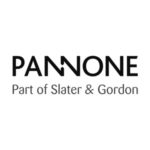Continue reading "Trusts: A perilous enterprise"
Trusts: A perilous enterprise

This was a second appeal against the decision of HHJ Pelling to overturn the trial judge’s order declaring inter alia that A was a 50% beneficial owner of A and R’s former home (the property) under a common intention constructive trust.
The trial judge had found that A’s father had bought the property in 1998 with the intention that it should be A and R’s family home. In 2008, A’s father had transferred the property to R for nil consideration. The trial judge had found that A’s father intended A to have a beneficial interest in it and had originally planned to transfer it into A a...

Continue reading "Trusts: A perilous enterprise"
The appellant (Mr Herbert) owned the freehold of a house and a large garden. The respondents (Mr Doyle and Mr Talati) owned the freehold of an adjacent property comprising a dental surgery with nine parking spaces. They also leased part of the ground floor in the main house from Mr Herbert. They carried on a practice as dental practitioners from the freehold and leasehold premises and they and their clients used the parking spaces. Mr Herbert wished to develop the former walled garden of Mansfield House and to build mews houses, but to do so he needed Mr Doyle and Mr Talati to exchange s...

Continue reading "Constructive Trusts: The Pallant v Morgan equity"
A Jersey fiduciary services provider known as the Lavy Hancox Group (the LH Group) was, during the 1990s, the forum for fraudulent activities by its beneficial owner, Mr Raymond Bellows (Bellows).
The plaintiff/appellant (a BVI company) was administered by the LH Group. They alleged that the LH Group, unlawfully and without authority, caused US$480,000 to be transferred to an account (the Midland account) held in the name of a subsidiary company, Lavy Hancox Management Ltd.
The defendant/respondent was also in receipt of the LH Group’s fiduciary services: Levy Hancox ...

Continue reading "Trusts: Silence is golden"